INTERNATIONAL INVESTMENT
AND PORTAL
Construction firms are seeking amendments to the Law on Bidding to create better conditions to implement projects.
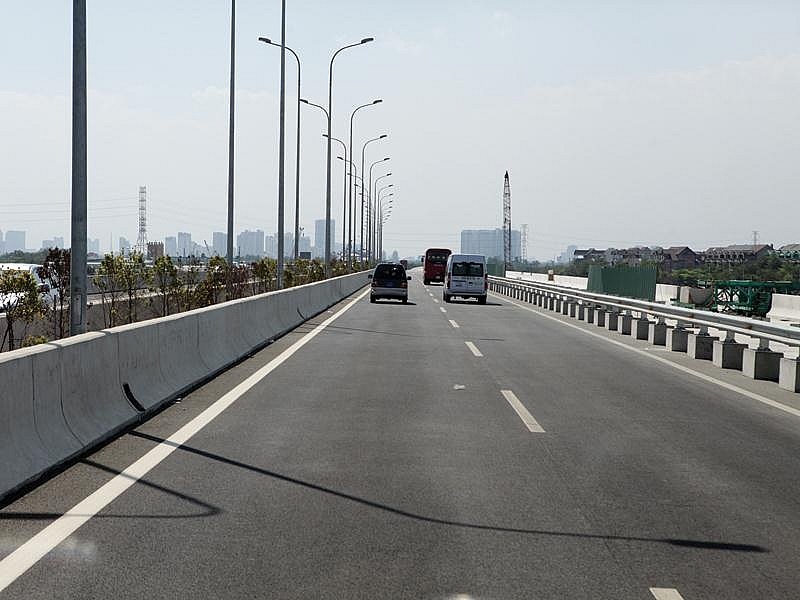 Photo: Duc Thanh
Photo: Duc Thanh
In the context of our focus on economic development, investment in technical infrastructure has been highly prioritised. Many key national projects on infrastructure development have been approved by the National Assembly and the government, including particularly large projects in terms of capital, technology, scope, and implementation, such as the North-South High-Speed Railway and urban railway projects.
However, Vietnamese construction companies and corporations are still limited in scale, with loose connections and insufficient cooperation. Additionally, the Bidding Law has not fully adapted to the realities of large projects, leading to several shortcomings. Specifically, we believe that some criteria in the current regulations need to be revised.
The first thing is the criteria for evaluating bidding. The requirement that bidders must have experience in two equivalent projects is no longer suitable for the high-speed railway, as Vietnam has never undertaken such a project before. Maintaining this criterion would eliminate Vietnamese contractors, relegating them to subcontractors for foreign companies despite their familiarity with construction tasks. We propose including experience in participating in Group A infrastructure projects as a criterion.
Another amendment is the criteria for evaluating bid proposals. The current mindset that the lowest-priced bid is selected, regardless of how much lower it is compared to the approved cost estimate, is problematic. According to the cost estimation formula, the pre-tax profit for contractors is only 5.5 per cent, while management costs are 6 per cent. Yet, some companies reduce their bids by 15-20 per cent, or in extreme cases, up to 45 per cent.
This suggests either our unit price standards are entirely incorrect or companies are deliberately underbidding to secure contracts, which may lead to losses or even bankruptcy as they “cut into their own flesh”. We recommend regulations to control underbidding to ensure a healthier construction market.
Besides that, it is necessary to give urgent timelines for these projects. Organising bidding according to current regulations is time-consuming. There should be mechanisms for direct contractor appointment or placing orders with Vietnamese contractors, allowing them time to prepare manpower and equipment. These mechanisms must clearly define the authority of agencies responsible for appointing contractors and the criteria for such appointments to avoid potential complications.
Furthermore, collaboration to leverage each company’s strengths is crucial. However, the current joint-venture model under existing regulations is loosely binding, often existing only in name during bidding, with each party working independently afterwards. This limits effectiveness. For upcoming large-scale projects requiring synchronised collaboration across multiple disciplines, we propose studying a “contractor consortium” model to enhance the capacity of Vietnamese contractors to undertake major projects. This model should include clear mechanisms for task allocation, rights, obligations, and project management.
Members of the Vietnam Construction Contractors Association recommend that the state unify management to eliminate these dual mechanisms within a single market. The current reality in the construction industry is the coexistence of two mechanisms. One is for public investment enterprises, which means state-defined unit prices, standard contract templates, and state regulations and standards.
The second is for non-budgetary and foreign-invested projects, which means market-based unit prices with partial reference to state standards, contracts based on the International Federation of Consulting Engineers, or partially referencing state contracts.
The coexistence of these two mechanisms leads to inconsistent management and significant construction debts, particularly in non-budgetary projects, resulting in a lack of market transparency.
 Central bank to resume gold bar bidding after 11 years
Central bank to resume gold bar bidding after 11 years
The State Bank of Vietnam (SBV) will resume gold bar bidding after 11 years, aiming to increase the supply of gold to the market, promptly and immediately settle the high difference in domestic and international gold prices, thus ensuring the gold market operates in a safe and stable, healthy, open, transparent and effective manner in accordance with the Prime Minister's direction.
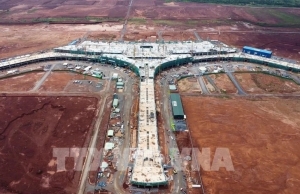 RoK’s corporation wins bidding for Long Thanh Airport project
RoK’s corporation wins bidding for Long Thanh Airport project
The Airports Corporation of Vietnam (ACV) on August 30 signed a contract for the management and operation consultancy of the Long Thanh International Airport project.
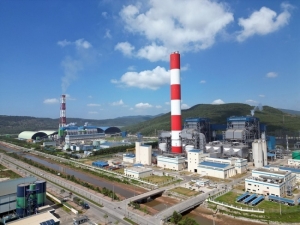 Bidding cancelled for proposed $2.4 billion Nghi Son LNG power plant
Bidding cancelled for proposed $2.4 billion Nghi Son LNG power plant
Authorities at Nghi Son Economic Zone have cancelled an invitation to bid, and halted the selection of investors, for the Nghi Son liquefied natural gas (LNG)-fired thermal power plant project.
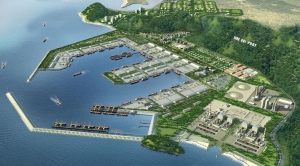 Nghe An to open bidding to select investor for Quynh Lap LNG-fired power plant
Nghe An to open bidding to select investor for Quynh Lap LNG-fired power plant
Nghe An Department of Planning and Investment is completing procedures for investment planning and organising bidding to select investors for the Quynh Lap LNG-fired power plant.
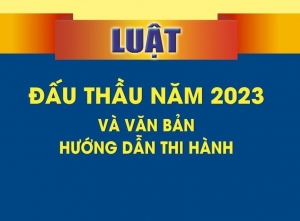 MoF unveils reforms to Law on Bidding in draft
MoF unveils reforms to Law on Bidding in draft
The Ministry of Finance (MoF) released a draft law proposing significant changes to the Law on Bidding and several related laws on April 8.
By Nguyen Quoc Hiep - Chairman of the Vietnam Construction Contractors Association



















